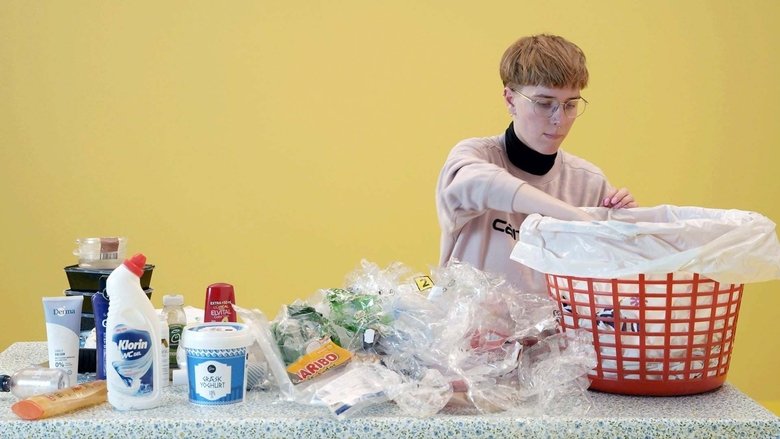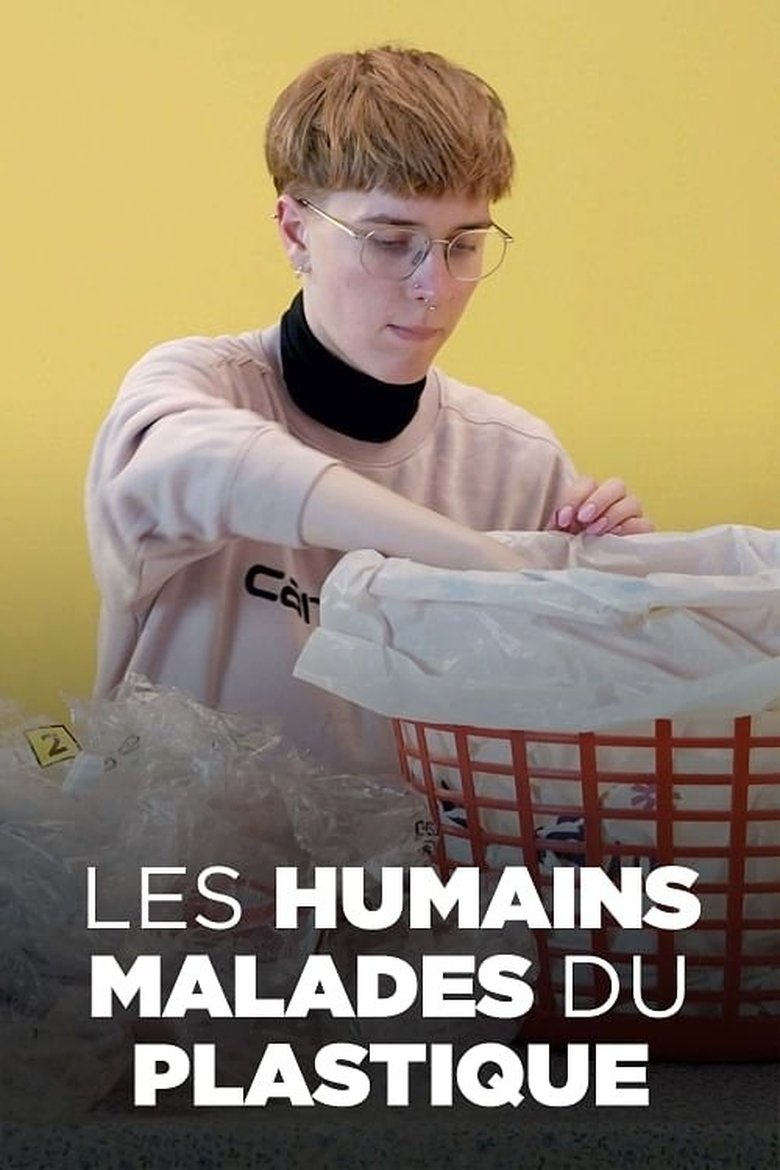

We the Guinea Pigs
Genres
Overview
As the use of plastic has gained ground in our lives over the years, there has been an inexplicable increase in a number of diseases and disorders amongst the population. In this film as part of the Why Plastic? series, we meet leading researchers looking into the reasons for these disorders. We also follow case studies of people suffering from various health conditions thought to be caused by exposure to certain every day materials including plastic. Are these people the victims of unfortunate coincidences - or is there an explanation?
Details
Budget
$0
Revenue
$0
Runtime
0 min
Release Date
2021-07-07
Status
Released
Original Language
English
Vote Count
1
Vote Average
6.5
5.0
Return of the Black Death
The black death had devastating effects in centuries past, but what actually caused it and how many lives did it take? The world has not seen a disease outbreak like it before or since. This film tells the story of skeletons recently unearthed in a long-lost plague cemetery beneath the streets of London. Was it the Bubonic Plague, or as scientists now suspect, an Ebola-like virus?
2014-04-06 | en
7.2
Trashed
Trashed - looks at the risks to the food chain and the environment through pollution of our air, land and sea by waste. The film reveals surprising truths about very immediate and potent dangers to our health. It is a global conversation from Iceland to Indonesia between the film star Jeremy Irons and scientists, politicians and ordinary individuals whose health and livelihoods have been fundamentally affected by waste pollution. Visually and emotionally the film is both horrific and beautiful: an interplay of human interest and political wake-up call. But it ends on a message of hope: showing how the risks to our survival can easily be averted through sustainable approaches that provide far more employment than the current 'waste industry.'
2012-12-13 | en
0.0
Troubled Waters: A Turtle's Tale
Exploring the impact of human behavior on our environment from the perspective of one of South Florida's most beloved and fragile underwater creatures: the sea turtle. A critical look at the effects of global warming, water pollution, and our "throw-away" plastic lifestyle on this keystone species...and inevitably ourselves.
2019-10-02 | en
8.8
Origins
"Origins" takes a journey through the biological roots of where we have come from and where we have gone. Using fire as a metaphor for technology, the film looks at the advances of our civilization and how the recklessness of unchecked technology is now choking out the environment and poisoning our bodies. Interviews with the biggest names in the health and green space create compelling context and arguments for how we can better coexist with nature. "Origins" shows how man, technology, and nature can walk together in balance.
2014-11-13 | en
0.0
Alaska Lifeboat
This "Theater of Life" series short focuses on a medical services ship that stops in the native village of Haines, Alaska. The natives are depicted as superstitious of modern medicine. In the end, however, youngster Ralph Sarlan (the only person identified by the narrator) is taken by airplane to get corrective surgery on his deformed foot.
1956-11-16 | en
0.0
Dis-Ease
DIS-EASE is a feature-length documentary about how we imagine disease, and how that affects what we do when we encounter illness, outbreaks, doctors, treatments, and disability in real life. It dives deep into the weird, wild archives of medical imaging, public health messaging, and pop-culture outbreak narratives to understand how ideas have moved between science, science fiction, and political ideology over the past century. (Yes, this is a film that covers both antibiotic resistance and the persistence of zombie apocalypse films.) Ultimately, DIS-EASE is a provocation to re-think how we define both the "public" and "health" in public health - who is included, what counts as care, and what it means to be sick or well in a world perpetually on the brink of collapse.
2024-08-01 | en
6.3
The Flu That Killed 50 Million
It is 1918 and the end of WWI. Millions have died, and the world is exhausted by war. But soon a new horror is sweeping the world, a terrifying virus that will kill more than fifty million people - the Spanish flu. Using dramatic reconstruction and eyewitness testimony from doctors, soldiers, civilians and politicians, this one-off special brings to life the onslaught of the disease, the horrors of those who lived through it and the efforts of the pioneering scientists desperately looking for the cure. Narrated by Christopher Eccleston, the film also asks whether, a century later, the lessons learnt in 1918 might help us fight a future global flu pandemic.
2018-09-25 | en
7.1
Poisoned: The Dirty Truth About Your Food
Through revealing interviews with experts and victims' families, this gripping documentary examines the problem of deadly foodborne illness in the US.
2023-06-09 | en
9.3
You Don't Know Nicotine
Amidst radical changes in nicotine use globally, one filmmaker's journey through the confusion & fear leads to a startling discovery about Earth's most hated stimulant. Society may be changed forever.
2020-11-20 | en
0.0
Poison in the Rockies
Acid rain, economic development, and a century of mining pollute Rocky Mountain waters.
1990-01-09 | en
7.6
Jason Becker: Not Dead Yet
When doctors diagnosed 19-year-old rock star Jason Becker with Lou Gehrig's Disease, they said he would never make music again and that he wouldn’t live to see his 25th birthday. 22 years later, without the ability to move or to speak, Jason is alive and making music with his eyes.
2012-03-03 | en
7.2
The Shiranui Sea
The sea around Minamata was heavily polluted with mercury during the 1950s and 1960s from the Chisso Corporation's chemical factory. This highly toxic chemical bioaccumulated in shellfish and fish in the Yatsushiro Sea which, when eaten by the local populace, gave rise to Minamata disease. The disease was responsible for the deaths and disabling of thousands of residents, all around the Yatsushiro Sea. The marine ecosystem was also extensively damaged.
1975-01-23 | ja
0.0
Arven
Christian has one year left to live, one year to get to know his newborn son Philip, and on year to make sure Philip will have a chance to get to know him. Heritage is a film about father and son relationship.
2015-11-05 | en
0.0
Cousteau: Alaska: Outrage at Valdez
On March 24, 1989, the supertanker Exxon Valdez ran aground in the pristine waters of Alaska's Prince William Sound, spilling 11 million gallons of crude oil. Jean-Michel Cousteau, son of Jacques Cousteau, takes us on a voyage to investigate first-hand the devastating impact of the U.S.'s largest oil spill. Amid the majestic mountains and ice floes of this serene setting, the leaking oil spreads like a virus staining and often killing everything it encounters. Harbor seals, sea otters, and bald eagles fall victim to the tragic accident.
1990-03-25 | en
7.5
Behemoth
Under the sun, the heavenly beauty of grasslands will soon be covered by the raging dust of mines. Facing the ashes and noises caused by heavy mining , the herdsmen have no choice but to leave as the meadow areas dwindle. In the moonlight, iron mines are brightly lit throughout the night. Workers who operate the drilling machines must stay awake. The fight is tortuous, against the machine and against themselves. Meanwhile, coal miners are busy filling trucks with coals. Wearing a coal-dust mask, they become ghostlike creatures. An endless line of trucks will transport all the coals and iron ores to the iron works. There traps another crowd of souls, being baked in hell. In the hospital, time hangs heavy on miners' hands. After decades of breathing coal dust, death is just around the corner. They are living the reality of purgatory, but there will be no paradise.
2015-11-11 | zh
0.0
Afterword: Images of the Unconscious
Dialoguing directly with the trilogy of documentaries “Images of the Unconscious”, made between 1983 and 1986 and based on clinical cases and therapies with a humanist approach and artistic expression, conducted by the pioneering psychiatrist Nise da Silveira (1905-1999) – screenwriter of that film –, here is presented, in two parts, an interview with the doctor, a student of Carl Jung and a pioneer in the application of non-violent treatments for psychiatric patients, given to director Leon Hirszman, in 1986. The conversation is divided in two parts: the first, "The emotion of dealing", the second, "The egress".
2014-11-21 | pt
6.6
FAT: A Documentary 2
FAT: A Documentary 2 is the sequel to the international sensation that delves deeper into the lies and myths surrounding the age old question: "What should I be eating?"
2021-01-03 | en
7.6
Vergessene Wracks
There are ticking time bombs off the coasts of the world, of which the public has hardly been aware: 6,300 wrecks, sunk during the Second World War, have been rusting in the sea for more than 70 years. Researchers estimate the amount of oil remaining in them at up to 15 million tons. What can be done to prevent an oil slick?
2017-05-26 | de
0.0
Plague at the Golden Gate
Discover how the 1900 outbreak of bubonic plague set off feat and anti-Asian sentiment in San Francisco. A fascinating medical mystery and timely examination of the relationship between the medical community, city powerbrokers and the Chinese-American community, Plague at the Golden Gate tells the gripping story of the race against time to save San Francisco and the nation from the deadly plague.
2022-05-24 | en
7.8
Seaspiracy
Passionate about ocean life, a filmmaker sets out to document the harm that humans do to marine species — and uncovers an alarming global conspiracy.
2021-03-24 | en